If you've ever been downing your bullet coffee and thought to yourself: can my keto diet actually cause gluten intolerance?
Then keep on reading my friend.
Lots of people wonder if the keto diet can cause you to become gluten intolerant because, well, both are pretty common.
That is:
- More and more people are "going keto", and
- Lots of people have, or are pretty dang sure they have, gluten intolerance at some level
And the number of people with gluten intolerance is growing.
It's estimated that around 1-7% of the people worldwide are affected by 1 of the 3 major "gluten-related disorders" of:
- Celiac disease (CD)
- Wheat allergy (WA)
- and Non-Celiac Gluten Sensitivity (NCGS) aka Gluten Intolerance
In this article, I'll go through:
- What is the Keto Diet
- What is Gluten Intolerance
- What Causes Gluten Intolerance
- And answer: Can the Keto Diet Really Cause Gluten Intolerance?
Let's get started????♀️
First up, What is the Keto Diet?
Unless you've been living under a low-carb rock, you've probably heard about the "Keto" diet, short for "Ketogenic" diet.
Originally developed in the 1920s to help treat epilepsy, the ketogenic diet restricts carbohydrates - typically to less than 50 grams per day. Most of the calories of a ketogenic diet come from fat at 70% of total calories.
In the past few years, the keto genetic diet has become "en vogue" and super popular.
Just go to a book store: rows and rows of cookbooks, recipes and celebrity-endorsed diet books featuring the keto diet.
There are a ton of websites out there that are also completely dedicated to keto like this site and this cookbook with only keto recipes so check those out if you want more information.
What is Gluten Intolerance?
Gluten-intolerance, or "non-celiac gluten-sensitivity", is a condition characterized by intestinal and extra-intestinal symptoms that people get after eating gluten-containing foods.
The symptoms of gluten intolerance overlap with celiac disease and other intestinal conditions like irritable bowl syndrome.
Symptoms of gluten intolerance include:
- Bloating
- Diarrhea
- Heartburn
- Headache
- Abdominal Pain
- Fatigue
- Skin Problems
- Muscle & Joint Pain
- Brain Fog
- Nausea
- Depression
- Anemia
What Causes Gluten Intolerance?
The cause of gluten intolerance is not fully known. It's actually a bit of a mystery.
Researchers are trying to figure out:
- What causes gluten intolerance
- Who might be more at risk for it
- And an easy way to diagnosis it
Gluten intolerance might be immune-related but there is currently no diagnostic test from a reliable biomarker, which means as of right now, the diagnosis isn't easy.
Not only that, but there’s a lot of overlap in symptoms between gluten intolerance and other gastrointestinal disorders, making a clear diagnosis even more difficult.
So far, the best way to determine if you have gluten intolerance is to go on a gluten-free diet and see if your symptoms go away.
If your symptoms improve (or better yet, completely disappear) then you’d be considered “gluten intolerant".
Can You Become Gluten Intolerant After Doing the Keto Diet?
There are reports of people trying a very low carb diet (Atkins-style) and when they start eating small amounts of carbohydrates again, they get bloated or start to feel very tired, for example.
In cases like this, often it's a combination of things - they didn't know how badly they were feeling and/or they just accepted their symptoms (whether it was nausea, heartburn, bloating, etc), as part of them. Their daily way of being the world.
So then, when they go really low in carb, as you do during a keto diet, the gluten content of the diet goes down naturally. Because many "typical" North American foods that are higher in carbohydrates, also happen to contain gluten.
Think:
- Whole grain breads
- Pasta
- Cereals
- Crackers, cookies, muffins
- Barley
- Couscous
Then, on the keto diet, they feel great and if they also happen to have undiagnosed gluten intolerance, a big part of their "feeling great" is the result of the majority of the gluten being taken out of their diet. If they start to then re-introduce a few items like for example, some whole grain pasta or bread and start to feel any of those symptoms, they might blame the carbs themselves when it could have been the gluten that was the actual culprit.
Again, it's hard to get a definitive answer because of the overlap of symptoms between other conditions; the lack of diagnostic test or screening biomarker for gluten intolerance and sources of hidden gluten in foods.
If you've tried the keto diet and have added carbs back in and aren't feeling so good, talk to your trusted healthcare provider.
Is the Keto Diet Good for Gluten Intolerance?
Because the keto diet is so low in carbohydrates, it's naturally then, lower gluten as many of the foods that are typical to the North American diet are wheat-based.
Think: whole grain breads, cereals, crackers, cookies, cakes, muffins, etc.
So you certainly can follow a keto diet and have a diet that's gluten-free (or at least gluten-friendly, with the majority of the gluten taken out.)
But just because you are following the keto diet, doesn't mean it's gluten-free so you'd still want to cut out the main sources of gluten.
You can get started with my Cheat Sheet! Foods to Avoid for Busy Moms with Gluten Intolerance. Grab it here.
So, Can the Keto Diet Really Cause Gluten Intolerance?
No, it's unlikely that the keto diet (or any diet for that matter) can cause someone to become intolerant to gluten.
If you're wondering if you might already be gluten intolerant, check out this article next: 7 Sneaky Signs You May Be Gluten Intolerant
If you're worried that your keto diet might cause you to become gluten intolerant, you probably don't have anything to worry about.
BUT if you're having symptoms like bloating, stomach pain, heartburn and extreme fatigue and can't figure it out, take a closer look at your diet and if you need to try going gluten free, you can start with my gluten-free diet plan for beginners.
~April
You may also be interested to check out these posts:
What Not to Eat With Gluten Intolerance (PDF list)
Can Gluten Give You Acid Reflux? 3 Signs to Watch For
References
Asri N, Rostami-Nejad M, Anderson RP, Rostami K. The Gluten Gene: Unlocking the Understanding of Gluten Sensitivity and Intolerance. Appl Clin Genet. 2021;14:37-50. https://doi.org/10.2147/TACG.S276596

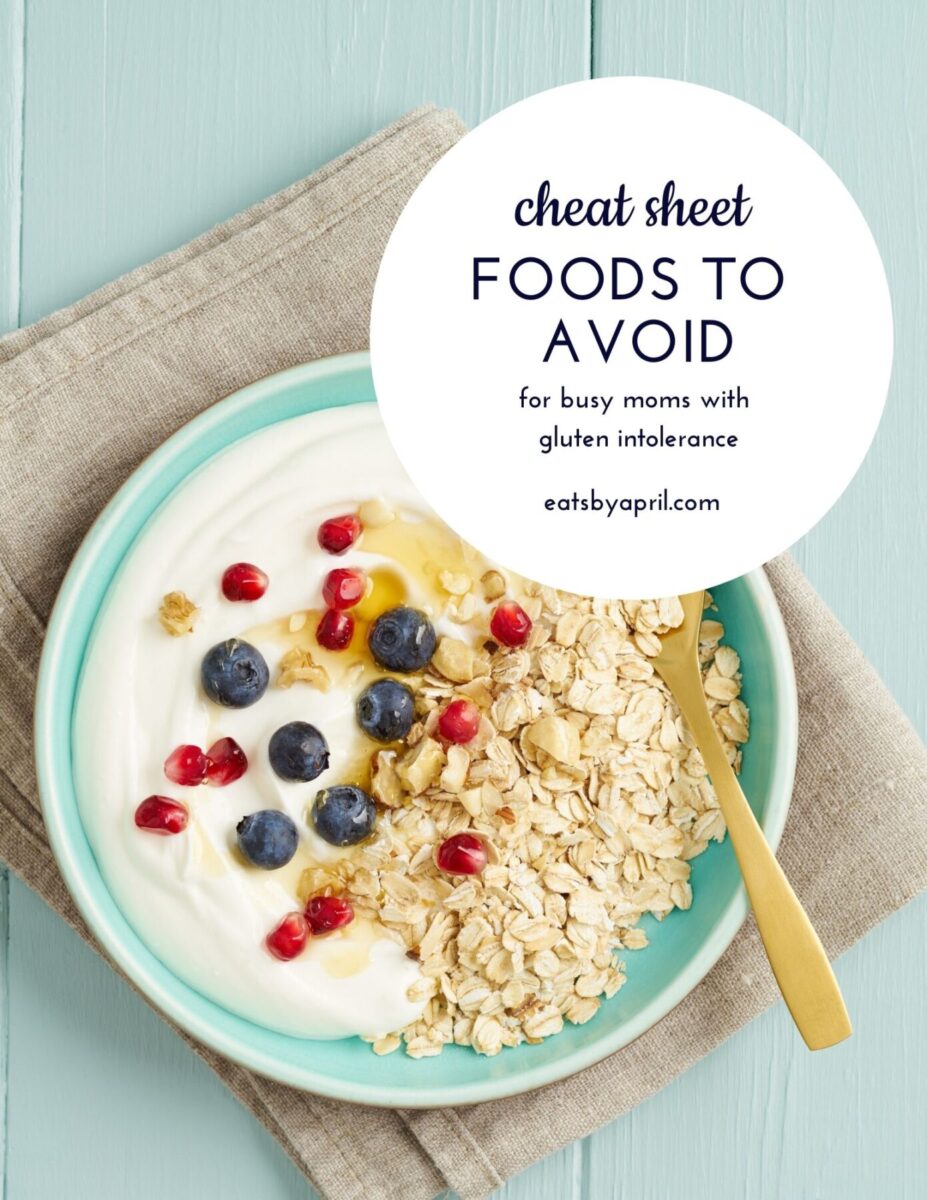

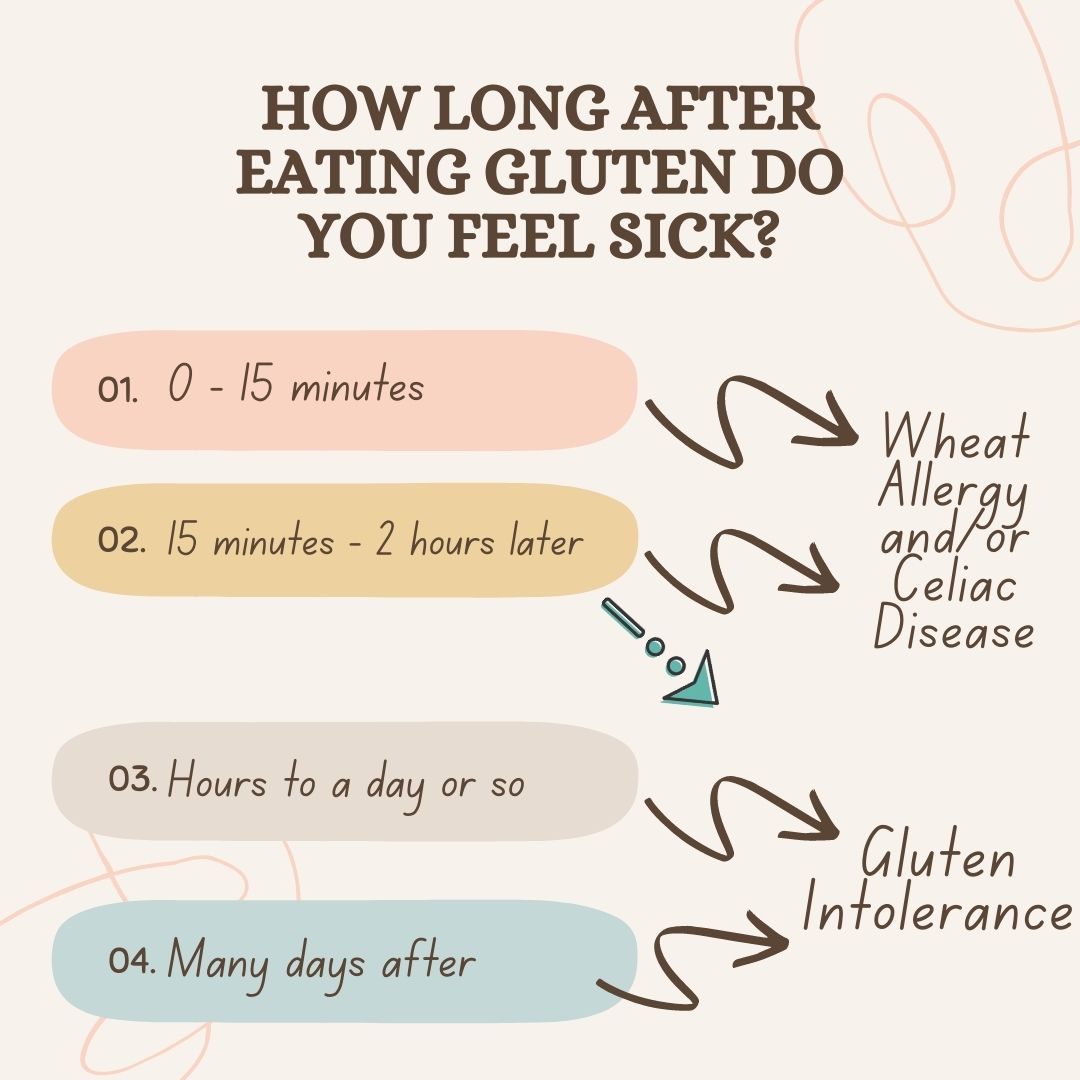
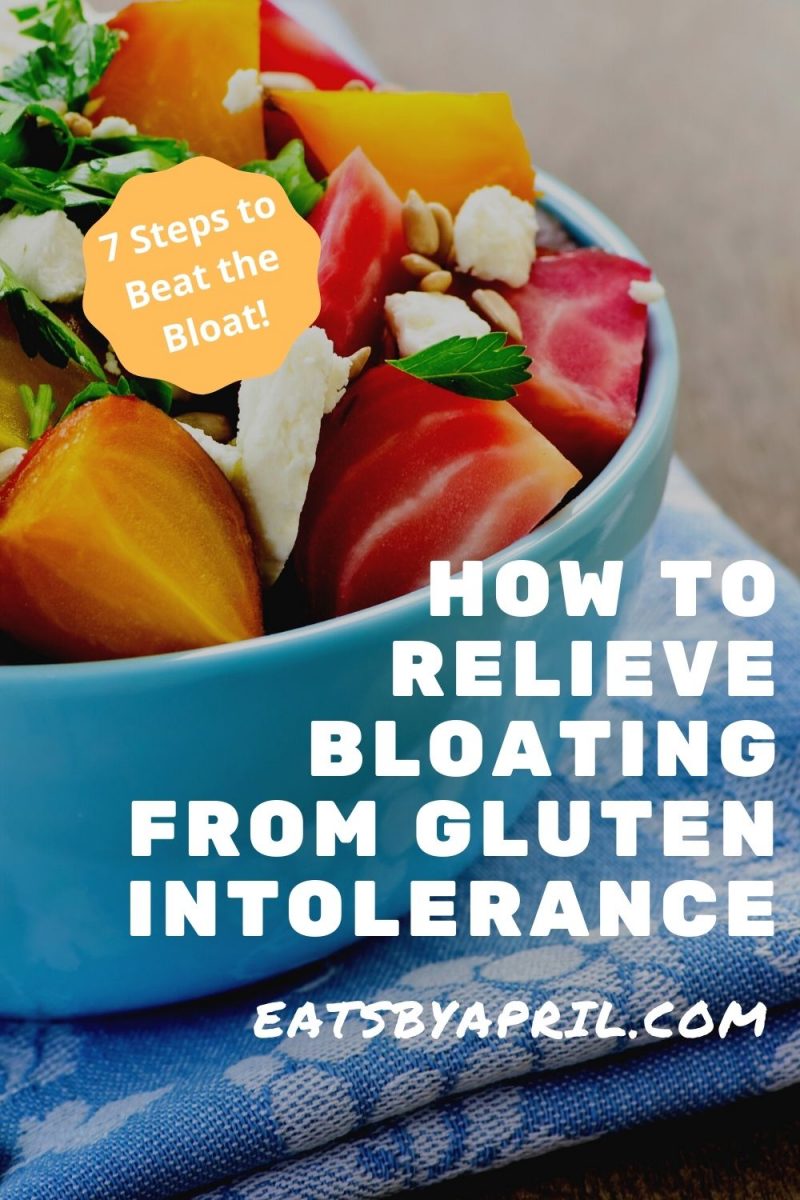

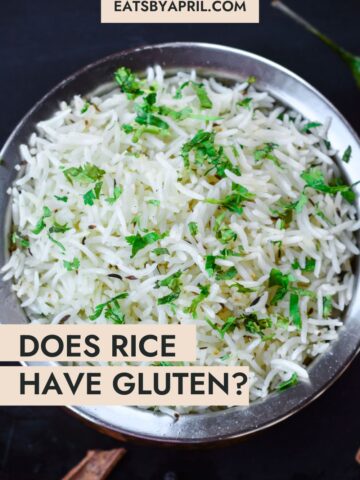
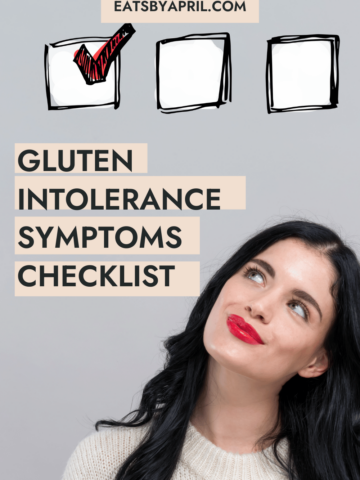

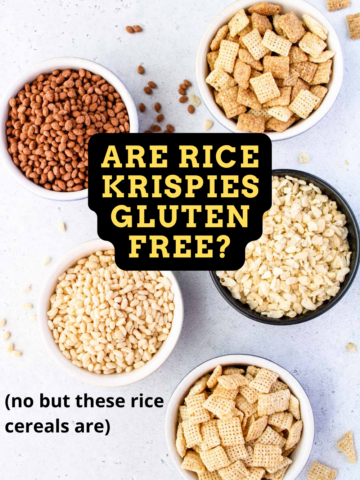
Comments
No Comments